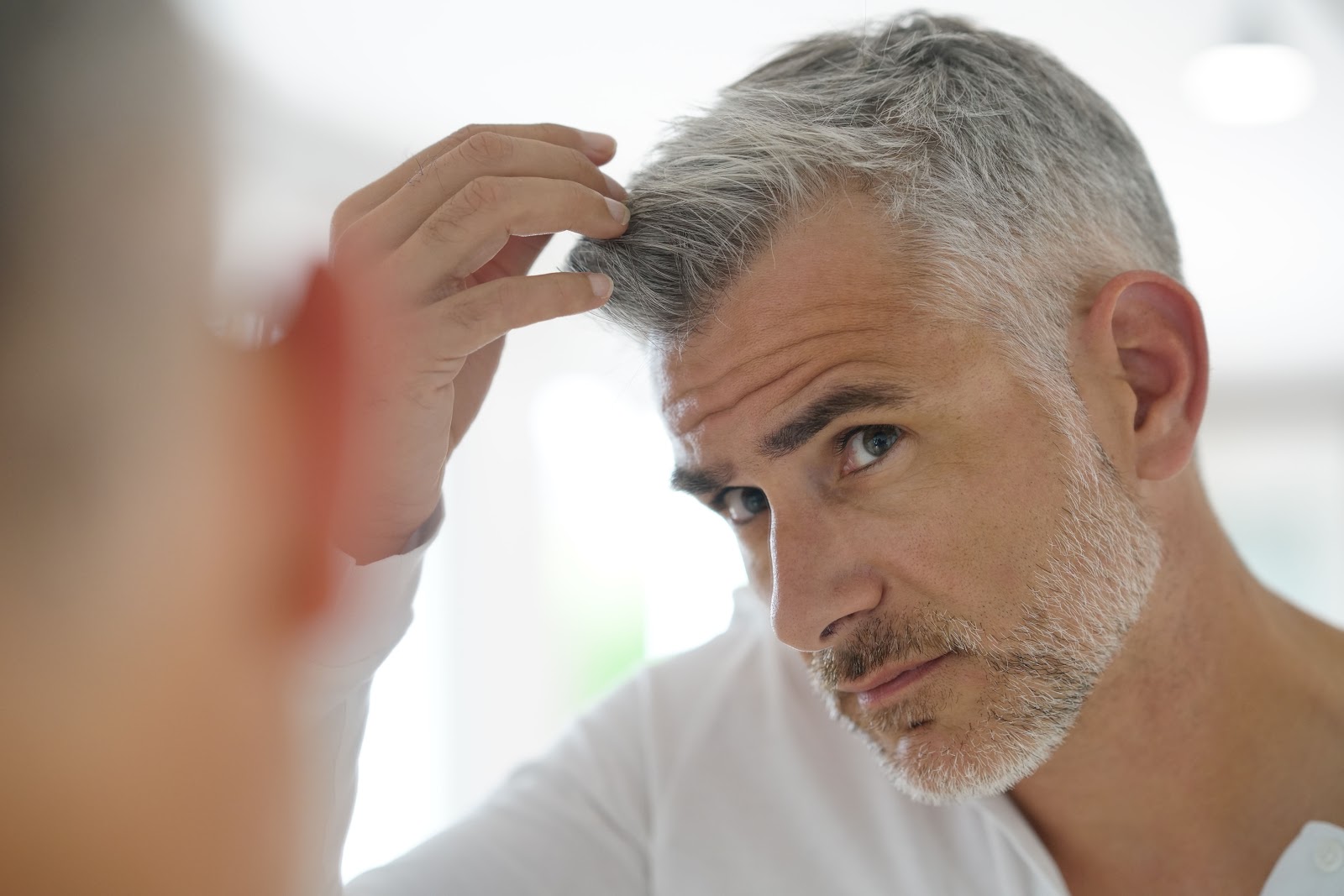5 Smart Ways to Prevent Split Ends

As stress levels rise to unprecedented levels this could mean and wreak havoc on your hairline. Science supports the concept that significant emotional stress may be linked to hair loss.
As we navigate the harsh reality of a global pandemic, our way of life has shifted to disruptions of routines and uncertainty. Whether you are dealing with the stress of compromised health of a loved one, working from home, financial struggles, or working on the frontlines of this pandemic, everyone has experienced stress in some way, shape, or form. When it comes to increased stress levels the hair’s natural growth cycle gets disrupted and may result in excessive shedding and hair loss. In this article, we are going to explore stress-induced hair loss. Here is what you need to know about telogen effluvium.
Stress causes a rise in the hormone cortisol that signals the hair follicle to transition into the resting phase of the hair growth cycle. The hair follicle recognizes this hormonal change and responds by signaling the hair to either stop growing or shed. The hair follicle reacts to the altered hormonal state and perceives it as a harmful environment. It is possible to not realize the effect that stress is currently having until the damage is already done.
What qualifies as significant emotional stress? Common life events such as loss of a loved one, divorce, or even prolonged stress-related to Covid-19. Other factors that could have an effect are psychological stress, sleeplessness, change of diet, high fever, surgery, and other stressors to your body and mind. Unfortunately, there is no proven way to prevent or stop an episode of telogen effluvium, and it should resolve on its own with time. However, there are things that you can do to help support your overall health. Strive to eat a balanced diet, avoid damaging hairstyles, excessive heat styling, chemical-based hair treatments, as they can contribute to further hair loss or cause hair breakage. It’s important to eat foods that are healthy for your hair, such as spinach, salmon, eggs, and other nutritious foods that are known to combat hair loss. If you are experiencing severe hair loss, patchy thinning associated with redness, itchiness, or pain, you should seek medical attention from a dermatologist. Last but not least, it’s important to get your stress under control. You should consider speaking with your primary care physician to address your hair loss concerns, stress levels, and obtain resources to get your stress under control. To learn more about non-surgical hair replacement systems, contact us to request a hair consultation.

